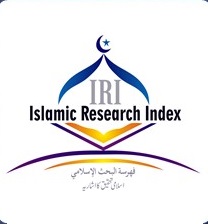Checks and Balances on Interpretations of Sacred Texts that Justify Violence
DOI:
https://doi.org/10.58932/MULF0040Abstract
Religious teachings are understood to be against violence. But could a scholar doing a religious interpretation justify violence? One way to address this issue could be to say that religious principles place limits even on religious scholars. Hence, religious scholars cannot ignore certain generally accepted standards. Some of these standards originate in religious texts themselves. But it is not against any religious teaching, nor it is secularism, to say that standards for interpreting religious texts should be coherent with logic and shared human experience. A religion may use rational ways of thinking to make its message more intelligible to everyone and the interpretation of religious texts should also be based on such rational ways of thinking. In Islam, Imam Fakhr-ud-din Razi advocated the “use of reason all through” as qanun-i-kulli. A contemporary (empirical, rational and universal) exposition of reason is also finding its way into religious literature. For example, Mustafa Akyol (in Re-opening of Muslim minds) and Alija Izetbegović (in Islam between east and west) advocate that moral evaluations presented by religion should be combined with experiential or shared justifications for ethical practices. This combination of reason and religion could help reduce communal biases and promote peacebuilding by promoting the possibility of inter-communal understanding.
References
Akyol, M. (2021). Reopening Muslim minds: a return to reason, freedom, and tolerance. New York, US: St. Martin's Essentials.
Cartwright, N. & Montuschi, E. (Eds.). (2014). Philosophy of social science: A new introduction. Oxford, UK: Oxford University Press, USA.
Duty, G. (1967). Divorce & remarriage. Minneapolis, UK: Bethany Fellowship, Inc.
Ghazali. (2013 pdf). قانون التأويل، تألیف أبي حامد محمد بن محمد الغزالي،الناشرالمكتبة الأزھرية للتراث-
Retrieve from https://alkawtheri.wordpress.com/wp-content/uploads/2013/09/d982d8a7d986d988d986-d8a7d984d8aad8a3d988d98ad984.pdf
Sheikh, I. J. (1987). The Islamization of the sciences: Its philosophy and methodology. The American Journal of Islamic Sciences, 4(9), 201-208.
Izetbegović, A. (1993). Islam between east and west. American Trust Publications.
Khan, I. A. (2012). Books-In-Brief: Authentication of hadith: Redefining the criteria. International Institute of Islamic Thought (IIIT).
Malik, M. B. (2019). Islam, reason and science. Retrieve from https://ilhaad.com/2019/04/eman-aqal-aur-science (16 April 2019).
Mufti, Ijaz. (2020 uploaded). «رویت ہلال ،مسئلہ اورحل» -مصنف: خالد اعجاز مفتی
Retrieve from https://archive.org/details/royatehiladmasalaaurhalbykhalidejazmufti
Quaranhouse. (2023). Rules for Interpreting the Quran. Retrieve from https://quranhouse.org/sp/article/1804
Popper, K. (2005). The logic of scientific discovery. New York, US: Routledge.
Rippin, A. (Ed.). (2013). Approaches to the History of the Interpretation of the Qur’ān. Gorgias Press.
Rowley, M. P. & Wild-Wood, E. (2017). Religion, Hermeneutics and Violence: An Introduction. Transformation, 34(2), 77-90. SAGE Publications.
Rodriguez, A. M. (2016). Human Reason and Biblical Hermeneutics: An Introduction. Journal of the Adventist Theological Society, 27(1), 85-97. Collegedale, US.
Usmani,T. (2023 uploaded.) مولانا تقی عثمانی، علوم القرآن، مکتبہ دارالعلوم کراچی، 1415ھجری
Retrieve from https://archive.org/details/1_20231030_20231030_0832/mode/2up
Wilber, K. (1998). The marriage of sense and soul: integrating science and religion. Random House New York.
Downloads
Published
How to Cite
Issue
Section
License
Copyright (c) 2025 South Asian Journal of Religion and Philosophy (SAJRP)

This work is licensed under a Creative Commons Attribution-NonCommercial 4.0 International License.









